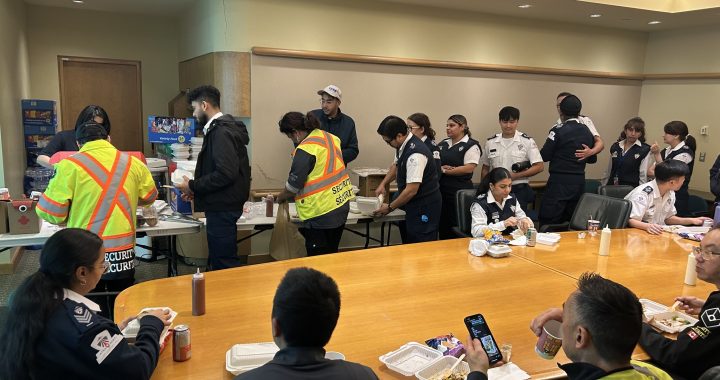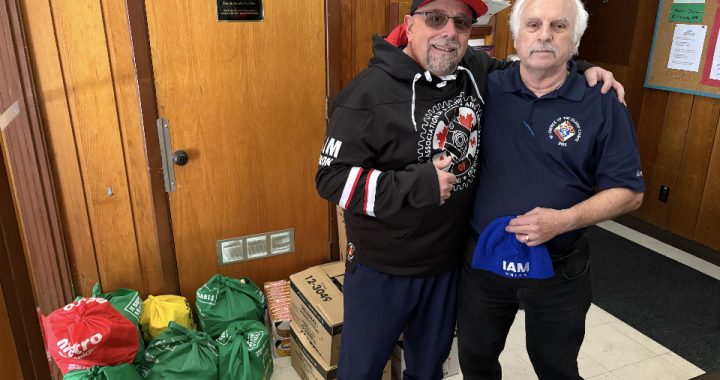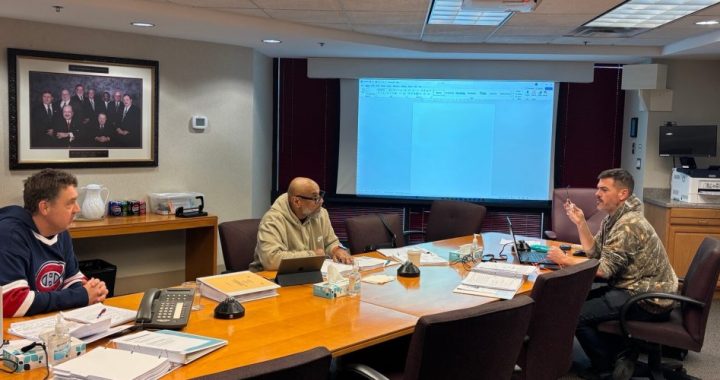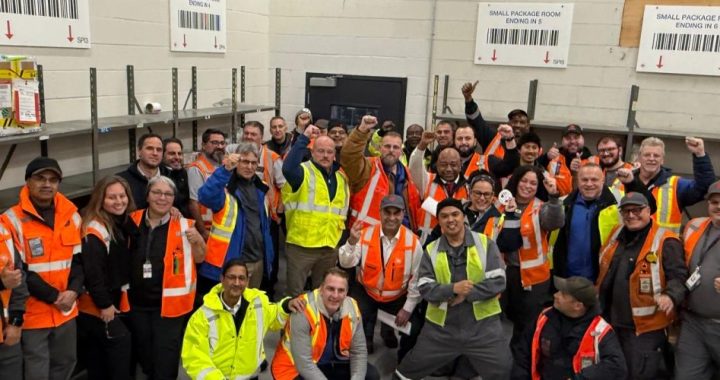International President Brian Bryant and Canadian General Vice-President (GVP) David Chartrand, accompanied by a delegation of IAM leaders, visited Air Canada members at Toronto Pearson Airport this week. Joining them were Vinny Addeo, Chief of Staff to the International President; Ralph Martin, Chief of Staff for Canada; Tom Reagan, Special Assistant to the International President; Dave Flowers, President and Directing General Chairperson of District 140; Vick Seebalack, President of Local 2323; and Jonathan Smith, Secretary-Treasurer of Local 2323.
The group spent the day touring worksites, meeting members directly in their work areas, and taking the time to understand the realities they face each day. Members discussed the challenges created by the rising cost of living, inflation, staffing shortages, and the growing demands of their roles. They also shared their expectations for the upcoming round of bargaining and the improvements they hope to see in the next collective agreement.
Throughout the visit, leadership emphasized that solidarity and unity remain the foundation of strong negotiations. President Bryant and GVP Chartrand assured members that their concerns and priorities will help guide the bargaining strategy and that every level of the IAM is committed to supporting them.
Members welcomed the opportunity to speak openly with leadership and expressed gratitude for the visit, noting how meaningful it was to see such strong representation from the international, district, and local levels.
To reinforce the IAM’s ongoing commitment to members, GVP Chartrand later shared a message reflecting the union’s approach to the months ahead:
“The strength of our union has always come from our members. When we stand together, stay informed, and support one another, we are unstoppable. We remain fully dedicated to securing a fair and respectful agreement that reflects the true value of the work our members perform every day.”
The visit was productive, informative, and energizing for everyone involved. With bargaining approaching, members and leadership alike left with a shared purpose and readiness for the work ahead.
Click here to view all pictures of the visit.






